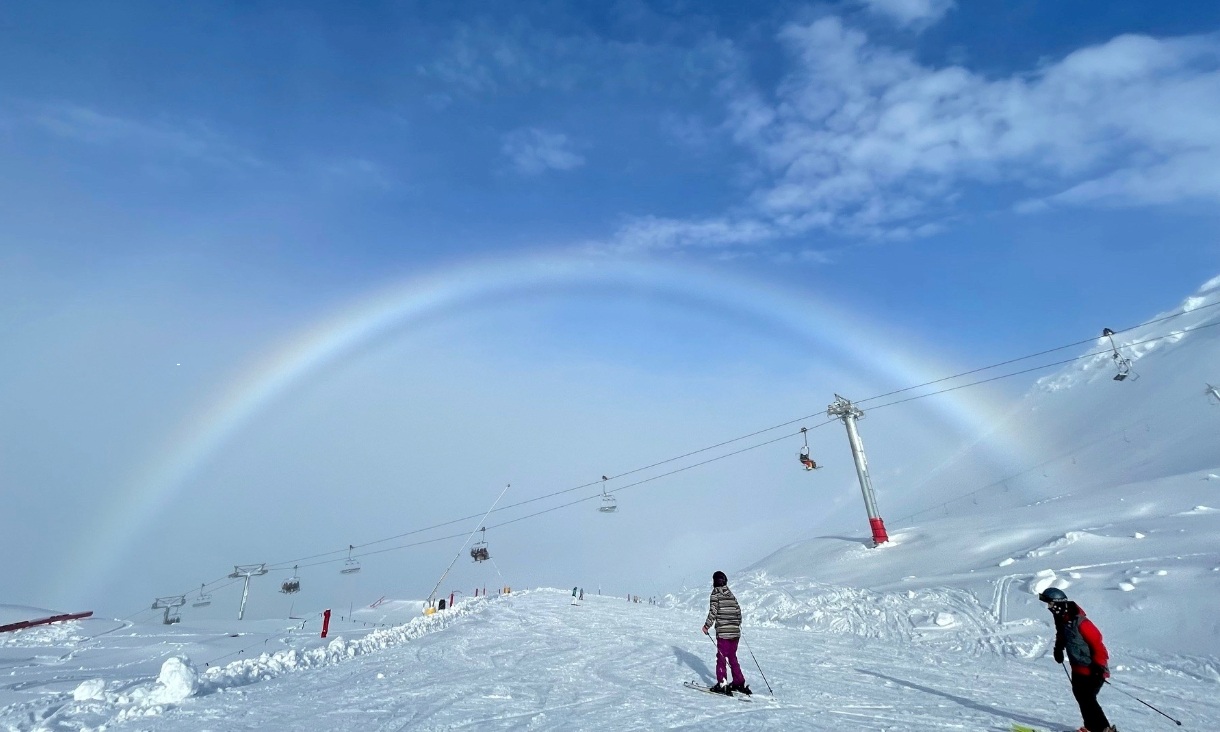A decade-long study of snowsport instructors has revealed what it means to seek a career that puts enjoyment and personal growth above profits and deadlines.
With workers increasingly abandoning the traditional nine-to-five in favour of flexible schedules and locations, the study explored those who left conventional jobs to pursue careers in the snowfields.
But the research in the International Journal of Research in Marketing, found turning a hobby like skiing into a career can be taxing, requiring sacrifices while reducing financial security.
Study co-author Dr Marian Makkar from RMIT University said research participants mainly left their day jobs because they were tired of every day, mundane routines.
"Escaping the daily grind in search for a more meaningful career was the main motivation but it didn't come without sacrifices," Makkar, a senior lecturer in marketing, said.
"We heard stories of financial, mental and physical sacrifice but overwhelmingly participants reported experiencing significant personal growth and fulfilment."

Mt Hutt, New Zealand. Image: supplied
Researchers studied the lived experiences of snowsport instructors in New Zealand, Japan and Canada who travelled around the world for work, going from winter to winter with no summer in between.
Makkar said participants usually earnt just enough money to maintain their lifestyle, constantly travelling with their possessions in one or two bags, including the gear they need for their work.
This was different to digital nomads, Makkar said, who usually aimed to reduce their productive time while boosting their leisure time.
"Although digital nomads and snowsports instructors shared some traits, such as a pursuit to escape the ordinary, they lived different lifestyles," she said.
Makkar said our workforce was at a turning point as employers rushed to draw lines between flexibility and perceived productivity, while employees increasingly seek meaningful experiences at work.
"For employees, there's never been a better time to demand flexibility or consider dumping nine-to-five roles for careers that are more meaningful," she said.
"But it's up to stubborn employers to embrace this shift or risk facing a productivity dive, perhaps even losing large chunks of their workforce."

Rainbow over Mt Hutt, New Zealand. Image: supplied
Previous research shows remote work can increase employee happiness by up to 20% but until now, researchers had not fully explored the experiences of people who turn their pursuits of fulfilment into their careers, Makkar said.
"These workers are after feelings of accomplishment, a life of virtue and greater meaning in life," she said.
"Happiness can be fleeting and short lived but hard work and setting big goals and developing skills to get there is what can bring long term life satisfaction and fulfillment."
One participant in the study said:
I remember at university my first management lecturer said, 'you could go on to be a CEO, be on $300,000 a year and have a month off every year to go skiing,' and I said, 'or I could go skiing every day and still afford to eat and pay my rent. It's all I really need, isn't it?'
But the snow life wasn't for everyone; Makkar said some participants eventually returned to the comfort of a more traditional nine-to-five job.
This often happened when participants felt they had nothing else to gain from persisting in their snowsports career.
Others left when they realised the lifestyle was not sustainable due to precarious working conditions, minimal wages, relying on the weather to produce snow, and unfair compensation and fixed-term contracts.
Some former instructors discovered creative ways to enjoy fulfilling and meaningful experiences, even as they moved into a more settled phase of life.
Another participant, Ryan, left full-time instructing but continued to return to a ski school where he previously taught.
"As I'm getting a bit older, I'm more open to other things if other opportunities come around," he said.
"If I could earn enough money to still go snowboarding for a bit of the year … I wouldn't necessarily rule that out."
Makkar said the study's insights could also be applicable in examining other non-traditional work, such as social media influencers.
"Like snowsport instructors, influencers often start with a passion and skill for a particular hobby," she said.
"But they eventually must manage the career's demands and dealing with what can be a gruelling experience being an influencer entrepreneur."
'Eudaimonic consumption careers', with co-authors Ann-Marie Kennedy, Marian Makkar and Samuelson Appau, is published in the International Journal of Research in Marketing. doi.org/10.1016/j.ijresmar.2025.03.007






